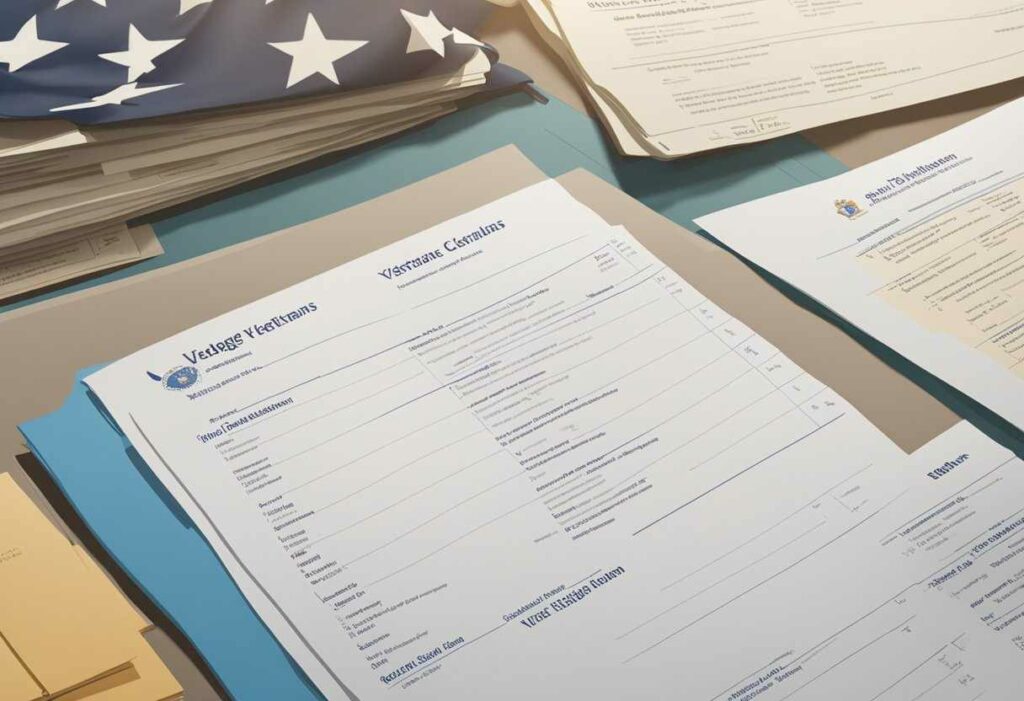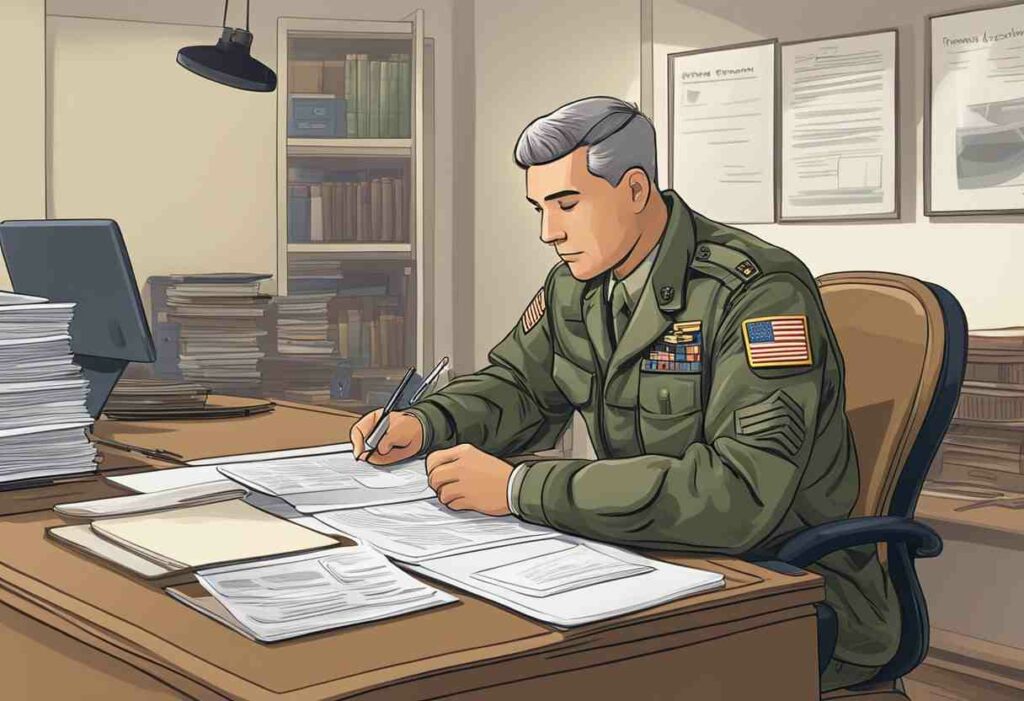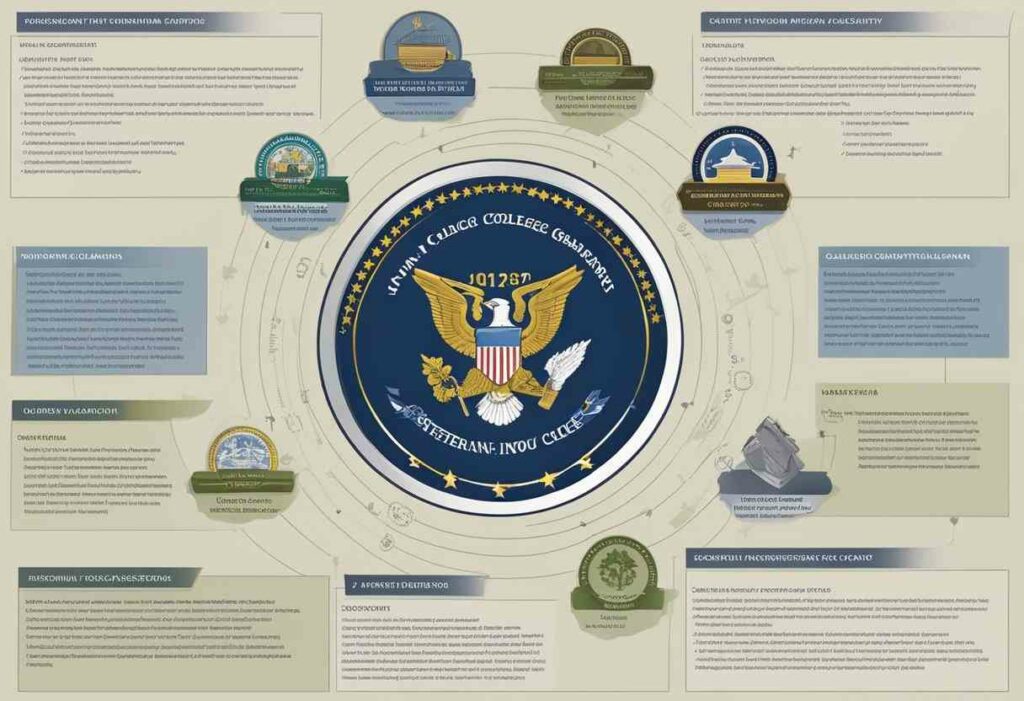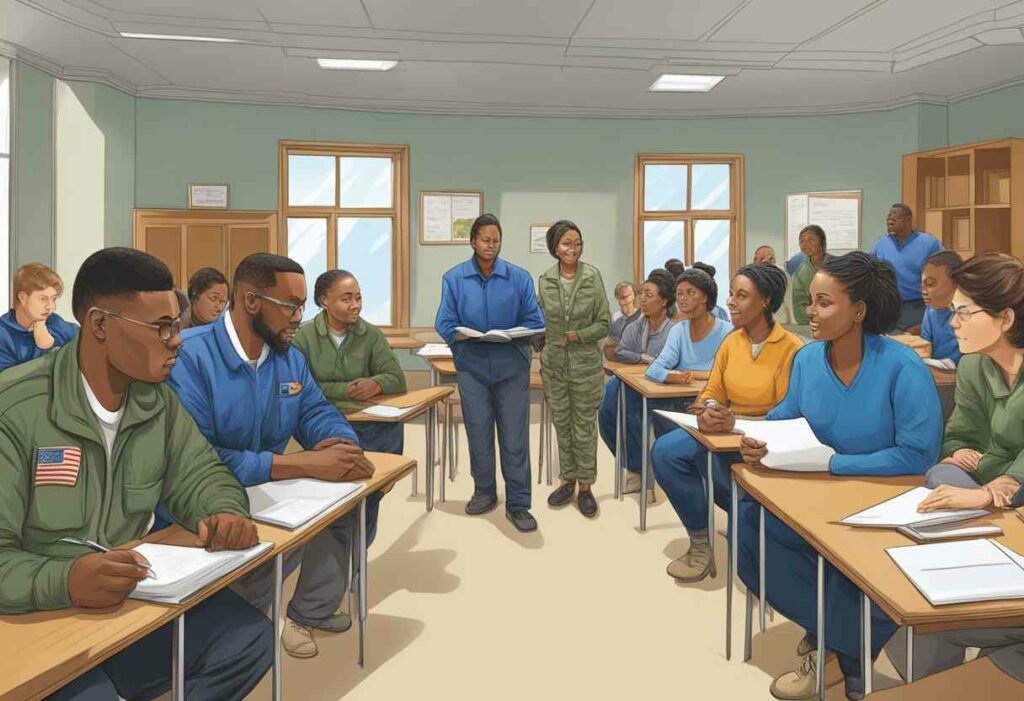Stepping back onto campus as a veteran feels like parachuting into a new battle zone.
Luckily, college financing got easier for me when I received a college grant.
As a veteran who’s walked that path, I have some intel to help you get your degree.
In this article, I’ll explain how to get Veteran College Grants and what are your best options.
What are Veteran College Grants?
Veteran college grants are financial aid packages designed to help you, as a veteran, afford higher education without the need for repayment. These grants are awarded based on service commitment, financial need, or academic merit.
Dive deeper into your educational journey with our detailed look at the College Career Advancement Grant guide.
Top 5 Veteran College Grants

These are the top 5 veteran college grants:
1. Post-9/11 GI Bil
Your service qualifies you for this comprehensive education benefit, covering tuition and fees for up to 36 months.
It also provides a housing allowance and a stipend for books and supplies.
If your chosen school participates in the Yellow Ribbon Program, you could receive additional financial support to cover expenses that exceed the Post-9/11 GI Bill limits.
2. Montgomery GI Bill-Active Duty (MGIB-AD)
MGIB-AD will help you with your education costs as an active duty member.
This grant gives you about $600 for up to 36 months, to be used for degree and certificate programs, flight training, apprenticeships, or correspondence courses.
Consider the $600 Buy-Up Program, where you can contribute additional money to increase your monthly benefits.
3. Montgomery GI Bill-Selected Reserve (MGIB-SR)
If you’re a reservist with a six-year obligation in the Selected Reserve signed after June 30, 1985, MGIB-SR will help pay for your education or training programs.
4. Yellow Ribbon Program
Designed to help students avoid out-of-pocket tuition and fees exceeding the Post-9/11 GI Bill® benefits, this program can be particularly beneficial if you plan to attend a private institution or a public school as a nonresident student.
5. Veteran Readiness and Employment (VR&E)
Previously known as Vocational Rehabilitation and Employment, this program offers significant assistance if you have a service-connected disability.
VR&E helps cover tuition, fees, books, and supplies and provides a subsistence allowance.
The purpose is to help you achieve your career and education goals, leading to long-term employment.
If you need help with your accommodation during college, check out my Grants for Living Expenses while in College article.
How to Apply for Veteran College Grants

Follow these steps to apply for veteran college grants:
- Determine Eligibility: Confirm your eligibility for VA benefits. Requirements may vary by grant but typically focus on your service history and discharge status.
- Gather Documentation: Organize documentation such as your DD-214, Certificate of Eligibility (COE), and military transcripts. Academic records might be needed as well.
- Select a School: Choose accredited colleges or universities that support veteran education benefits and inquire about veteran-specific grants.
- Consult the VA: Contact the Department of Veterans Affairs for advice on which education benefits best suit you.
- Complete Applications: Fill out all application forms accurately. Apply directly through Veteran Affairs or via the institution offering the grant.
- Enrollment Certification: Work with the school’s certifying official to certify your enrollment for VA benefits.
- Submit and Follow-Up: After submitting your applications, monitor their status and follow up with the VA or the school’s financial aid office regarding any updates or additional requirements.
Explore the future with our overview of STEM Grants for College, a key to unlocking opportunities in science and technology for veterans.
Eligibility Criteria

These are the eligibility criteria required to get veteran college grants:
1. Service Requirements:
- Active Duty: If you’re an active duty service member, you must serve for a period of not less than 90 before applying for grants. Some programs, like the Post-9/11 GI Bill, require 90 days of active duty service after September 10, 2001.
2. Discharge Status:
You must have an honorable discharge from military service.
3. Education Level and Program:
High School Diploma/GED: You’re generally required to have completed high school or obtained a GED.
Documents Required
These are the documents required to get veteran college grants:
- Government-issued photo ID (driver’s license, passport).
- Social Security card.
- DD Form 214 (Certificate of Release or Discharge from Active Duty).
- Acceptance letters from academic institutions.
- Previous college transcripts (if applicable).
- Current bank statements.
- VA Form 22-1990: Application for Education Benefits.
- VA Form 22-1995: Request for Change of Program or Place of Training (if you’ve used benefits before).

Comparing College Grants for Veterans
This table compares all the college grants for veterans:
| Grant Name | Eligibility | Coverage and Benefits | Purpose |
|---|---|---|---|
| Post-9/11 GI Bill | Veterans with service commitment | – Tuition and fees for up to 36 months – Housing allowance – Stipend for books and supplies – Yellow Ribbon Program support (if applicable) | Higher education and related expenses |
| Montgomery GI Bill-Active Duty (MGIB-AD) | Active duty members | – Approximately $600 per month for up to 36 months – Can be used for various educational programs and training – $600 Buy-Up Program available | Education costs while on active duty |
| Montgomery GI Bill-Selected Reserve (MGIB-SR) | Reservists with a six-year obligation | – Financial support for education or training programs | Education and training for Selected Reserve |
| Yellow Ribbon Program | Veterans under Post-9/11 GI Bill attending private or out-of-state public schools | – Covers tuition and fees exceeding Post-9/11 GI Bill benefits | Supplement tuition and fee expenses |
| Veteran Readiness and Employment (VR&E) | Veterans with service-connected disabilities | – Tuition, fees, books, and supplies – Subsistence allowance | Career and education support for disabled veterans |
FAQs on Veteran College Grants
These are the Frequently Asked Questions on Veteran College grants:
What types of college grants and scholarships are available specifically for disabled veterans?
Disabled veterans are eligible for grants like the Vocational Rehabilitation and Employment (VR&E) program that acknowledges the service and sacrifice of disabled veterans.
How can veterans who are struggling financially find assistance to pay for college?
Financially under-resourced veterans can explore options such as the GI Bill benefits or contact their school’s Veterans Affairs office to discover need-based grants and other financial aid opportunities.
Are there education grants available for veterans’ dependents, and how can they be accessed?
Veterans’ dependents can qualify for benefits like the Dependents’ Educational Assistance (DEA) program, which provides education and training opportunities to eligible dependents of veterans who were permanently disabled in the line of duty.
How do veterans qualify for the Pell Grant, and what are the requirements?
Veterans can apply for the Pell Grant by submitting the Free Application for Federal Student Aid (FAFSA) and meeting the financial need criteria without disqualification due to their veteran status.
In what ways does the military support veterans’ education through funding and grants?
The military supports veterans’ education through programs like the Post-9/11 GI Bill and the Yellow Ribbon Program, which provide funding for tuition, housing, and books for eligible former service members.
What type of financial aid is available to children of veterans for their college education?
Children of veterans can have access to aid such as the Marine Gunnery Sergeant John David Fry Scholarship or state-specific programs designed to support the educational goals of service members’ families.
Conclusion
As a veteran who has personally benefited from these grants, I can attest to the life-changing impact they can have.
Remember, veteran college grants are more than just financial aid – they’re a token of appreciation for your service and a pathway to unlocking your full potential through education.
So, take that next step, explore the opportunities available, and don’t let anything hold you back from reaching your academic and career goals.


